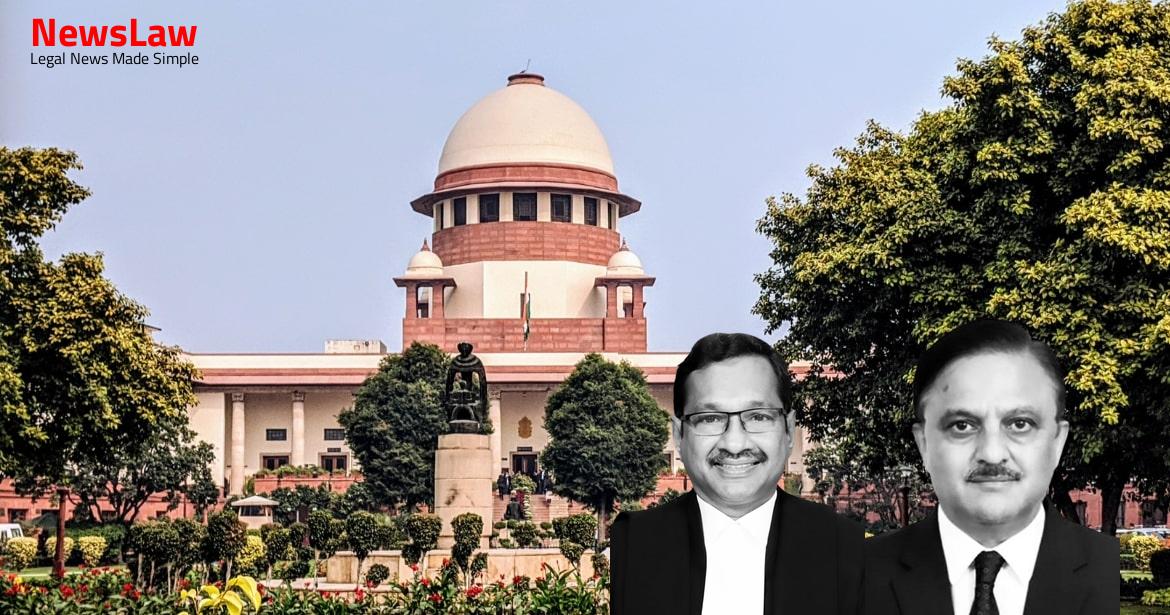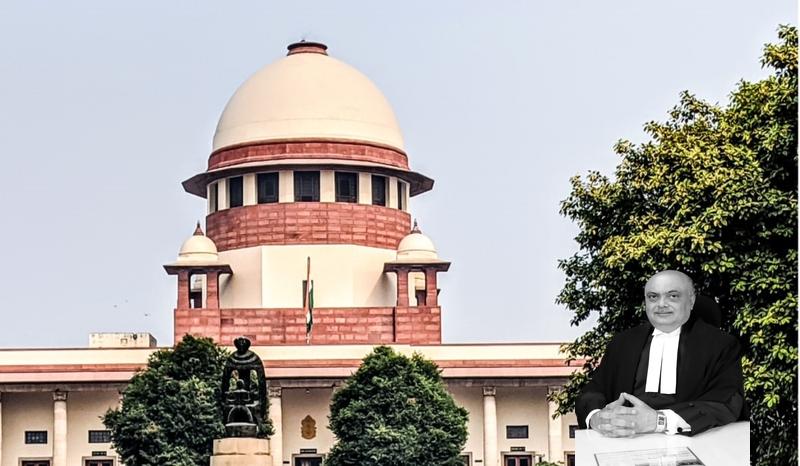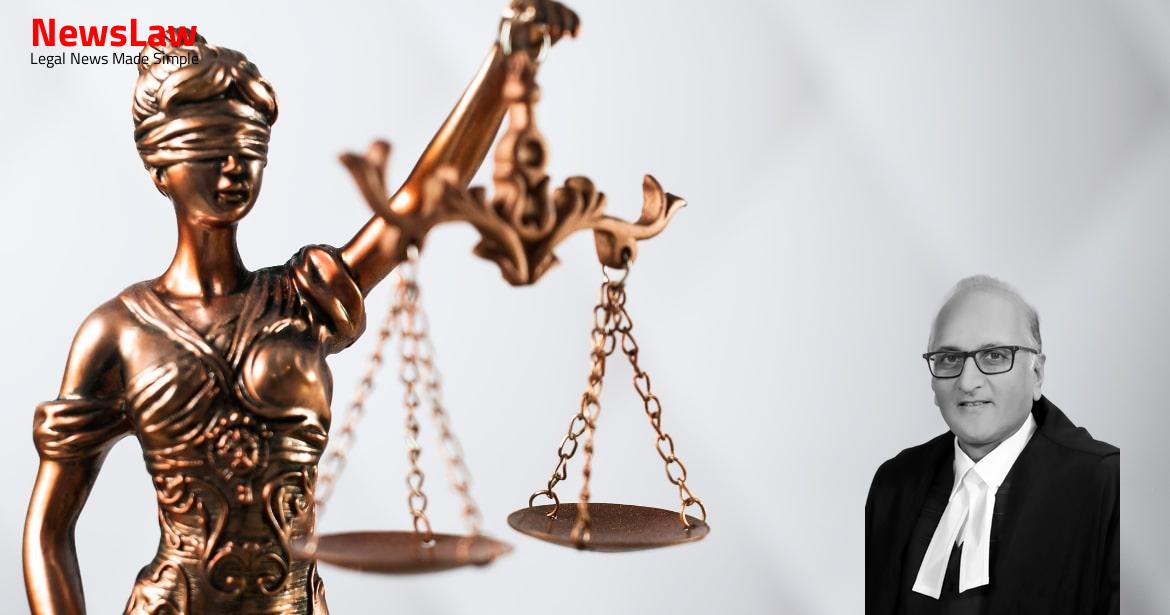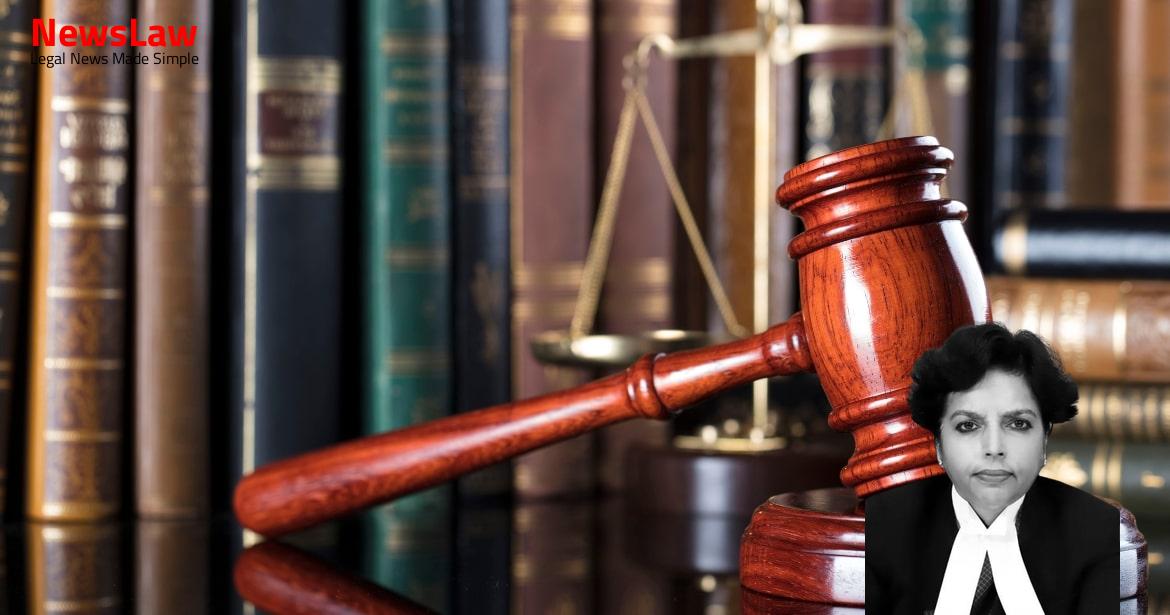Explore the meticulous judicial analysis conducted in a recent appeal against acquittal, where the court navigated through various legal principles and standards. The focus is on the court’s critical evaluation of evidence, witness credibility, and the application of established legal norms. This case summary sheds light on the importance of thorough legal scrutiny in upholding the principles of justice and fairness.
Facts
- The Bench allowed the appeals by setting aside the order of conviction and restoring the acquittal by the trial Court.
- The trial Court disbelieved the evidence of the prosecution witnesses regarding motive and recovery under Section 27 of the Indian Evidence Act.
- Serious suspicion was raised by the trial Court over the recovery made under Section 27 of the Act.
- The trial Court also eschewed the evidence of the Ballistic Expert, which remained inconclusive.
- Despite the trial Court extending the benefit of doubt in favor of the appellant due to unproven motive and doubtful recovery, the Delhi High Court overturned the acquittal based on the motive and recoveries relied upon.
- The Delhi High Court accepted the evidence of PW2 regarding motive and recoveries made, leading to the conviction being upheld.
- Recoveries made at the place of occurrence included a wooden piece of the butt of a gun and cartridges.
- The observation Mahazar and recovery Mahazar under Section 27 of the Act were signed by police officers, the latter also signed by PW2.
- Four cartridges were found in the pocket of the deceased.
- Statements of PW1 and PW2 did not indicate any specific suspect.
- Upon securing the accused, recovery of the firearm was made.
Also Read: Compliance with Article 22(5) of the Constitution: Duty to Serve Grounds of Detention
Arguments
- The appellant’s wooden piece of the butt was found to belong to him
- The High Court considered the circumstances forming a chain sufficient to point towards guilt
- The trial Court’s judgment, according to counsel Mr. Krishan Kumar, should not have been reversed by the High Court
- Motive was not established in a manner known to law according to the appellant
- Importance of motive in cases of circumstantial evidence was highlighted
- The Ballistic Expert’s opinion was inconclusive in favor of the appellant according to the trial Court
- The power of the High Court in deciding the appeal was defended by Ms. Aishwarya Bhati, Additional Solicitor General
Also Read: Dismissal of Application Seeking Bail Relief
Analysis
- The Appellate Court must proceed cautiously before reversing a judgment of acquittal unless it is deemed perverse.
- Scientific evidence like reports from Ballistic Experts are considered as opinions.
- The Trial Court’s judgment in cases of acquittal should be respected when two plausible views exist.
- Witness credibility can vary, and reluctance to sign documents may not always indicate falsehood.
- Appellate Courts should exercise caution and refrain from making hasty remarks.
- The role of an Appellate Court in appeals against acquittals under Section 378 of the CrPC is well-defined.
- District judiciary should have autonomy to decide cases independently without external pressure.
- Subjectivity should be avoided in judicial decisions, with emphasis on evidence rather than personal bias.
- Contradictions in witness testimony should be carefully analyzed in context.
- Appropriate weightage should be given to both direct and circumstantial evidence.
- Discrepancies in witness statements should be scrutinized to determine reliability.
- The High Court’s decision should adhere to established legal principles and not deviate without justification.
- Constraints faced by courts may impact procedural aspects, but adherence to legal standards is essential.
- Cross-examination and contradictions may impact the reliability of witness evidence.
- Last seen theory must be backed by concrete evidence for conviction.
- Implied motives without concrete evidence may not be sufficient for conviction.
- The High Court should respect the observations and reasoning of the Trial Court unless it is manifestly flawed.
- An appellate court has full power to review, reappreciate, and reconsider the evidence upon which the order of acquittal is founded.
- Various expressions such as ‘substantial and compelling reasons,’ ‘good and sufficient grounds,’ ‘very strong circumstances,’ ‘distorted conclusions,’ ‘glaring mistakes,’ etc. do not curtail the extensive powers of an appellate court in an appeal against acquittal.
- The findings of fact can be held to be perverse if arrived at by ignoring or excluding relevant material or by considering irrelevant/inadmissible material.
- A decision is considered perverse if it is based on no evidence or thoroughly unreliable evidence, making it unreasonable.
- Principles regarding powers of the appellate court include a double presumption of innocence in favor of the accused, which is strengthened by the judgment of acquittal, keeping in mind the weight of the trial court’s opinion.
- The High Court could have been slower in reversing the order of acquittal rendered by the Court of First Instance.
- The report is inconclusive regarding the firearm belonging to the appellant being used for committing the offense.
- All aspects have been considered thoroughly by the trial Court with no perversity found in its decision.
- The law presumes a double presumption in favor of the accused after a due adjudication by the trial Court.
Also Read: Unfair Trade Practice in Insurance Contract
Decision
- The appeals have been allowed.
- The order of conviction by the High Court of Delhi has been set aside.
- The acquittal by the trial Court has been restored.
Case Title: RAVI SHARMA Vs. STATE(GOVERNMENT OF N.C.T. OF DELHI) (2022 INSC 699)
Case Number: Crl.A. No.-000410-000411 / 2015



